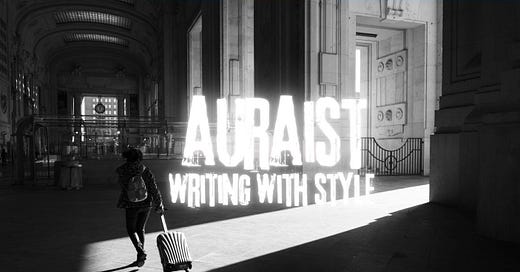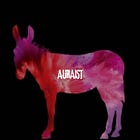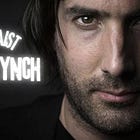Coming soon for paid subscribers: the best-written book of the month.
Recent literary fiction
—'Truly original… Deeply weird, deeply funny and deeply felt'—the Daily Telegraph; 'Very strange and very funny'—the Guardian; ‘Sleek and darkly comical… with the melancholic wit and whimsy of Miranda July’—the Boston Globe
—‘Perhaps the most brilliant English novelist of his generation’ Alan Hollinghurst
—‘Time runs faster backwards. The years – long, arduous, and uncertain when taken one by one – unspool quickly, turning liquid, so one summer becomes a shimmering light that, almost as soon as it appears in the mind, is subsumed into a dark winter, a relapse of blackness that flashes to reveal a face, a fireside, a snow-encrusted garden.’
A Guardian, Irish Times and BBC Book for 2025.
At the above links you’ll find:
The opening pages of our picks. Make up your own mind about the quality of the prose.
The full list of the books we considered.
Information about submitting to Auraist. If we publish your work, we’ll invite you to answer our questions on prose style. Your answers will be considered for inclusion in the published collection of these answers by many of the world’s best writers.
Complete our reader survey or restack this post and we’ll send you a complimentary paid subscription to Auraist.
Or click the Like (heart) button and help spread the word about the only publication set up solely to champion beautiful prose and battle the Replicant Voice.
Best-written books of the century
Pet peeves in prose style
Paul Lynch:
I have noticed a trend in contemporary fiction where certain writers do away with one aspect or another of traditional grammar or formatting without any justification within the book’s form for doing so. It’s the worst kind of pretentiousness. Every decision you make in the writing of your fiction must associate back to the meaning at the heart of the text.
We chose Lynch’s Prophet Song as the best-written work on the shortlists for the Booker Prize and the Dublin Literary Award. Read the full interview here»
Anna Della Subin:
Signposting! Nonfiction book publishing has a fetish for something it calls “signposting.” The idea is that the author should plant flags in their text so that the reader knows where they are at any given moment and what direction they’re headed in. These flags are supposed to be sentences that state as baldly as possible what the author is trying to do.
But I feel that a beautiful landscape doesn’t need a sign. What I love in reading nonfiction is the feeling that, by the end, you have arrived somewhere entirely unexpected. I tried to do this in Accidental Gods, and I am happy when sometimes I hear from readers that they felt they had no idea how they got from Point A to Point Z. Of course, if a reader becomes completely lost, this means something has gone wrong on the map of the book, but plastering little signs won’t fix that.
We chose Subin’s Accidental Gods as the best-written book on the PEN Hessell-Tiltman shortlist for historical writing. Read the full interview here»
Eskor David Johnson:
There is one that pops up most often in fiction that gets described as lyrical, which as a term itself I’ve come to interpret as shorthand for overwrought or poetically imprecise. The peeve is this sort of double-speak in invoking images. So as to not step on anyone’s toes, I’ll make up an intentionally egregious example to demonstrate:
“He had wanted to stand on the hill and feel the fingers of the wind, the cool caresses of the breeze.”
Or
“The sound of the kettle was that of an infant crying, the small screams of children at play.”
It even pained me to have to type those ones.
Language like this often gets described as lyrical but what it really is is unfocused and superfluous. The writer is taking two stabs at landing an image that should really, if their powers were up to it, only require one. This double-speak allows them to get away with a laziness, and has also succeeded in convincing readers they are experiencing something carefully crafted when in fact it’s a janky construction full of excess parts.
Do it once, do it right, and have that be it.
We chose Johnson’s Pay As You Go as the best-written work on the shortlist for the Centre for Fiction’s first novel prize. Read the full interview here»
Lavie Tidhar:
‘In genre, traditionally, there was this idea that the prose needs to be very transparent, that the story was everything and “pretty” prose was a distraction. But then if you look at, say, what Zelazny or Samuel Delany did in the sixties, they’ve got this beautiful prose that then gets undercut quite cleverly with dialogue that’s everyday, that’s vulgar at times, and it creates a wonderful effect, which I’ve tried to use myself. And then in the past two decades there has been almost an over-correction to the idea of transparent prose, of writing very lush prose instead, which is a hard trick to do, because if you don’t do it right it ends up purple.’
We chose Tidhar’s The Circumference of the World as a best-written release in speculative fiction. Read the full interview here»
Recommended
Coming soon we have the best-written works on the shortlists for June’s literary prizes, and more authors answer our questions on prose technique. Plus more selections from our subscribers’ submissions.
Our archive has dozens of author articles on prose style, hundreds of picks from recent releases and prize shortlists, and the best-written books of the century. A paid subscription gives you full access to this archive.
Thanks for reading Auraist and helping to support fine writing.
Sean McNulty










